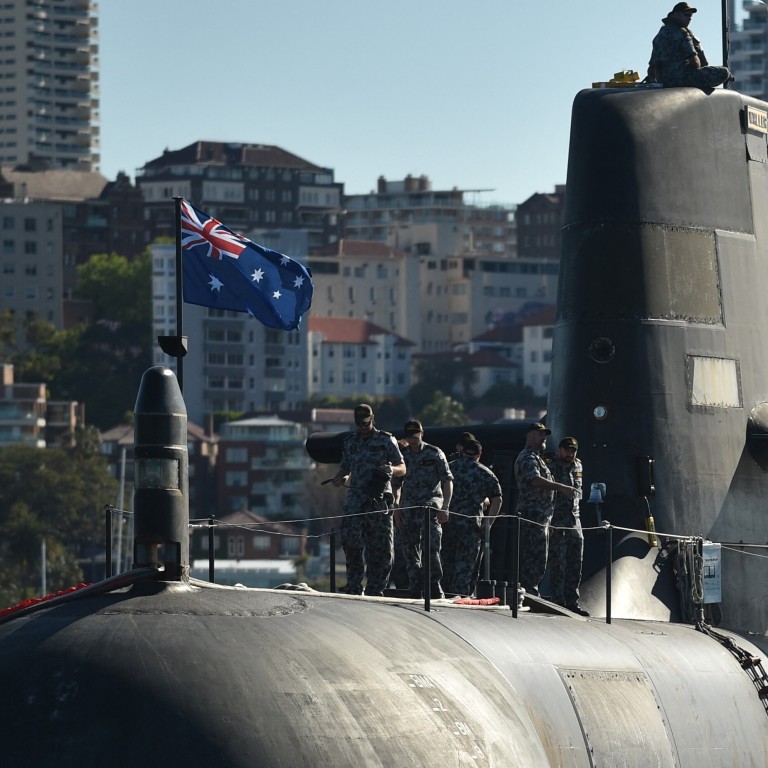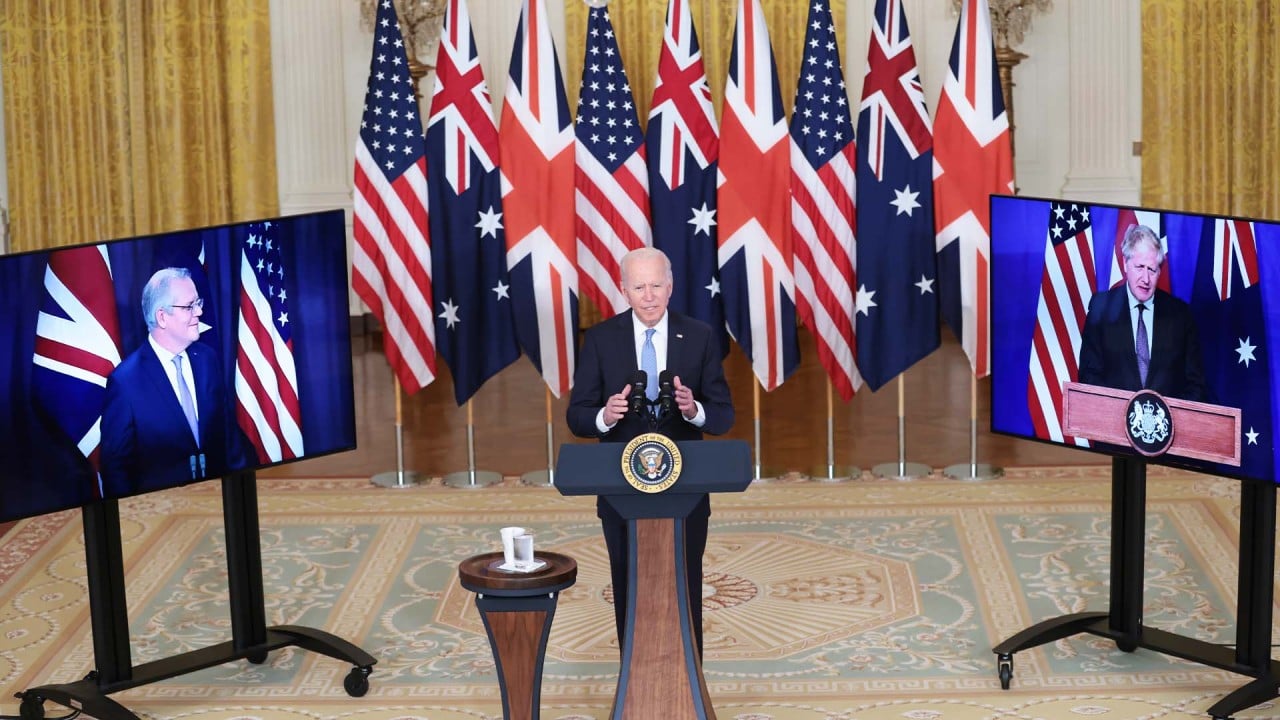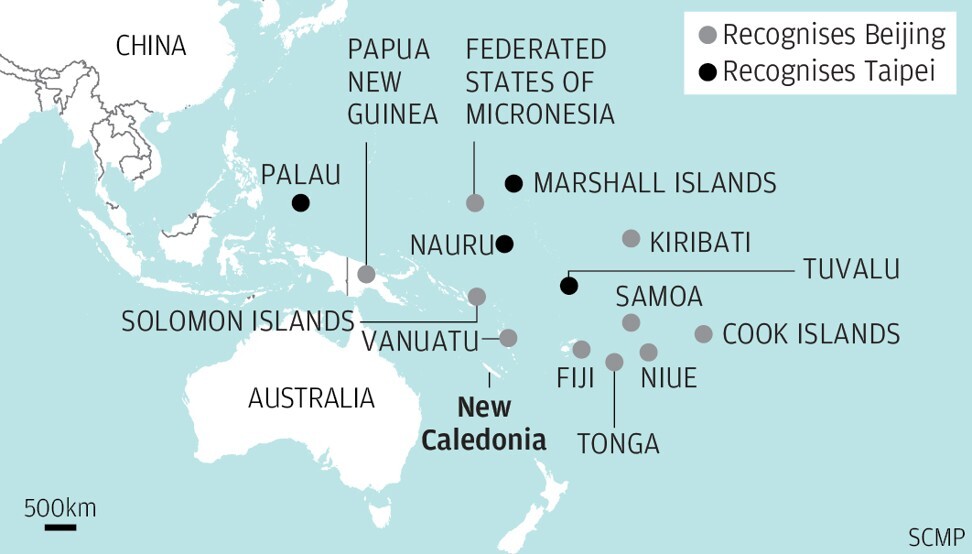
Aukus fallout: Australia, France have too much at stake in Indo-Pacific to stay angry for good, analysts say
- The row over an axed submarine deal has triggered concerns from the region, with Japan worried about the threat to cooperation between like-minded democracies
- But observers say France and Australia are cognisant of their shared interests at a time of growing Chinese influence in the Pacific islands

“You don’t behave like this on personal exchanges of leaders who are allies. But maybe it is just confirmation that we were never seen as an ally,” Thebault told Australia’s National Press Club last week.
Thebault’s speech and the unravelling Australia-France relationship made diplomats nervous, Australia’s national broadcaster ABC said in a report. It quoted Japan’s ambassador to Australia Yamagami Shingo as saying that while Tokyo understood France’s disappointment, he was worried about the threat to cooperation between like-minded democracies in the region.
“Our situation does not allow for the luxury of this dispute to continue between partners,” Shingo said. “Who would rejoice in these developments? That is the question that we have to ask ourselves.”

03:51
US, UK, Australia announce ‘historic’ military partnership in Pacific
“Everyone knows that governments play dirty when it comes to big arms deals. They watched France grab the original Australian submarine deal from under Japan’s nose, for example,” he said. “Southeast Asian governments want as many outside powers to take an interest in the region as possible.”
But unlike Canberra’s tensions with Beijing that have resulted in trade sanctions and a possible hit to Australia’s international education industry, and a huge hit to its A$1 billion wine exports to China, Hayton and other analysts said there may not be a similar downgrade in relations with Paris.
Kamala Harris in Paris to ease France-US tensions amid Aukus fallout
Alexandre Dayant, a French national who researches Asia and the Pacific Islands at the Lowy Institute in Sydney, said France and Australia were cognisant of their shared interests.
“Both France and Australia are Pacific powers, Australia by pure geography and France because we do have French territories,” he said.
France has three territories off Australia’s eastern coast – New Caledonia, Wallis and Futuna, and French Polynesia. It has 1,000 troops stationed at a naval base in New Caledonia.
Australia is, in effect, a ‘bridge’ between French territories in the Indian Ocean and the Pacific, so it is logical for the two countries to cooperate
Carlyle Thayer, an emeritus professor at the University of New South Wales and the Australian Defence Force Academy in Canberra, agreed, adding that Macron had put “considerable time and effort” into building better ties with Australia when he came to power in 2017.
The 61-point vision statement outlines main areas of geographic, defence and climate cooperation, including specific cooperation in the Indo-Pacific.
“It is quite clear from public comments made by Macron, that he viewed the nuclear submarine deal with Australia as more than a commercial transaction but a strategic commitment to work together to maintain peace and security in the Indo-Pacific,” Thayer said.

Hayton said that the Indo-Pacific Strategy the country had been building since 2012 was “founded on three partnerships: with India, Australia and Japan”.
“Australia is, in effect, a ‘bridge’ between French territories in the Indian Ocean and the Pacific, so it is logical for the two countries to cooperate,” he said.
Dayant referred to the upcoming national elections in France and Australia, saying the current fractious ties had to do with “personal politics and a domestic agenda that needs to be met and nothing to do with collaboration” in the Pacific.
Morrison has to call for polls by the end of May, while France’s presidential election is in April.
“It’s definitely a blow to the French government and to President Macron’s hopes of re-election. There are many French jobs and Macron’s personal prestige at risk,” Hayton said.
He said the rhetoric was unlikely to continue at the same pace once both elections were concluded, though “it may fall to the Americans to make everyone behave”.
US was ‘clumsy’ in Aukus submarine deal, Biden tells France’s Macron
There are no official sanctions, or new and high tariffs on Australian goods heading to France but Paris may try to delay talks around a free trade agreement between Australia and the European Union. Negotiations began mid-June three years ago, but were paused in October until February when the 12th round will begin, according to trade minister Dan Tehan.
The EU, however, has not set a date, the ABC reported. The reasons given for the pause were the subs deal and dissatisfaction with Australia’s climate commitments prior to COP26 in Glasgow. Australia only set a net-zero target by 2050 some days before the climate summit.
China’s growing influence and investment activity in the islands that make up the 14-nation Pacific Islands Forum has prompted Australia – and the US and its allies – to pay closer attention to the region.
France is concerned about a third independence referendum in New Caledonia that is coming up. An independent New Caledonia could banish the French naval fleet there, changing dynamics in the region and leaving an opening for China to expand its influence.
Did China Mobile rumours lead Australia to make a wrong call over Digicel?
New Caledonia also has large nickel reserves, an important battery metal that China is interested in, he said.
Dayant said Australia could take the first step to repair the relationship by focusing on other areas of cooperation with France.
“What France wants is for Australia to show clear proof of the relationship. France is waiting for more than words, it is waiting for actions”.


